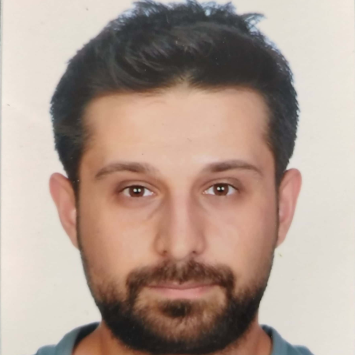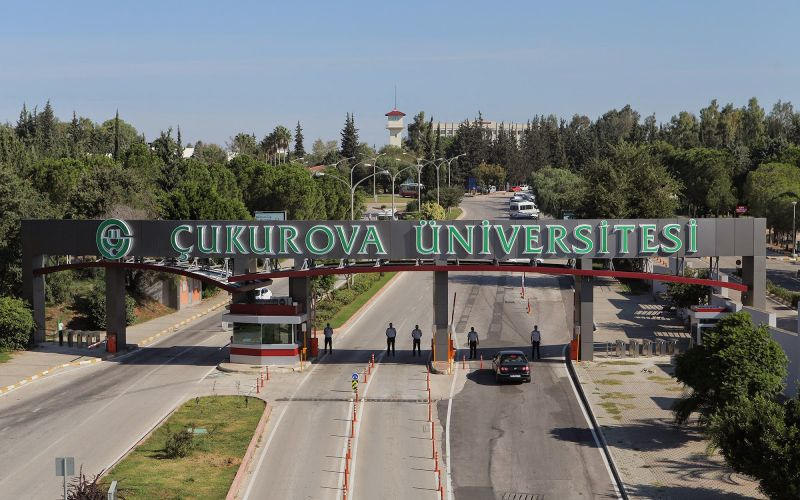Venue:
Balcalı, Çukurova Üniversitesi Rektörlüğü, 01330 Sarıçam/Adana, Turkey
Attend in Person:
If you want to attend the workshop on-site, please email sympo_adana@confapmm.org. The symposium seats are
limited. Both contributors and non-contributors who wish to participate in the symposium in
person need to apply to the symposium organizers.
VISA:
https://www.mfa.gov.tr/
Visitors who are not exempt from entry visa must obtain their visas or schedule an appointment
with the Turkish Consular offices via Pre-Application System for Turkish Sticker Visa
(www.visa.gov.tr). The applicants who meet the requirements will be directed by the
Pre-Application System for Turkish Sticker Visa to the e-Visa system (www.evisa.gov.tr) In those
countries where Türkiye does not have a consular representation can also use online scheduling
for appointments with the nearest accredited consular office of Türkiye.
In order to avoid inconveniences that may be caused by delays in processing, it is recommended to
apply for visas at least one month in advance before the planned travel.
The visas submitted to foreigners do not guarantee absolute rights of entry to Türkiye.
Visa fees are not refundable in cases where applications are rejected
All applicants are required to have a medical insurance that will be valid during their stay in
Türkiye.
The length of stay provided by visa or visa exemption cannot exceed 90 days within each 180 days.
The regulation of 90 days of stay within the last 180 days is binding for all foreigners that
will travel to Türkiye.
It is not possible for foreigners holding two passports to stay in Türkiye for 90 days each with
their two different passports within the last 180 days.
In all types of visa applications, Turkish consular offices may issue visas with a maximum
duration of stay of 90 days. The foreigners who wish to stay longer than 90 days in Türkiye,
should apply for "Short Term Residence Permit" at the Provincial Directorate of Migration
Administration in order to extend their residence.
The residence permit of the foreigners will be cancelled if they stay outside Türkiye for longer
than 120 days in total during the last year.
For United Nations (UN) Travel Document (Laissez-Passer) holders who have blue UN travel
documents, visa exemption with 90 days length of stay within the preceding 180 days may apply
during their official visit to Türkiye if they can certify their official assignment. Red UN
Travel Document holders, shall be exempt from entry visa and may stay in Türkiye 90 days within
the preceding 180 days regardless of their purpose of visit. General visa provisions shall apply
for Blue UN travel document holders subject to regulations specified according to their country
of origin.
Visa applications for travels except for touristic or trade purposes (work or study etc.) will
need to obtain visa through Turkish Representations in the abroad.
Regardless of the visa regime applied towards the citizens of a country, the travel document
holders of that country need to obtain visa from Turkish missions beforehand.
Any applicant under the age of 18 must submit official written approvals from both parents. For
those applicants who certify that their parents are officially divorced and prove the parent
holding their custody as well as for those with one parent deceased, visas may be issued in
accordance with their purpose of visit.
The authorization of processing the residence permit applications submitted by the following
persons who enter Türkiye availing visa-free regime and without requirement of obtainment of
Student Visas lays with Local Immigration Offices (Provincial Directorates of Migration):
Foreigners who arrive in Türkiye upon invitations by universities under Turkish Higher Education
Board to study at the associate, undergraduate, graduate, post-graduate, Ph. D levels pursuant
to international student exchange programs, cultural programs as well as under EU Education and
Youth Programs.
For foreigners wishing to enter Türkiye via naval ports with touristic purposes, visa-free entry
permits may be issued by the local governorates. These permits shall have a maximum 72 hours
duration of stay and will be only valid for sightseeing purposes in the vicinity of naval ports
where they entered the country. This practice, as it intends to facilitate entry for those
visitors subject to visa, does not entitle visitors to visa. Passports of these visitors are not
retained by the border authorities; however, visitors are given "Harbor City Entry Permit" which
is required to be returned to the authorities upon their exits.
Any piece of data submitted here may be processed and stored in database accessible to the
relevant Turkish authorities in accordance with their respective mandates.
Tourist Visa
If an invitation letter is submitted for a Touristic Visa application, it must include the
inviting person's TR Identity Number, clear identity, the list of invitees, permanent address,
contact number, length and purpose of stay and the affinity with the applicant must be stated in
the letter. If the inviting side is an organization or a company, tax registration certificate
of the organization will be required. In the invitation letter it is also required for the
inviting person/authority to pledge for covering victuals and accommodation expenses and for
taking their own responsibility. The applicant is required to have sufficient and/or regular
remunerations.

